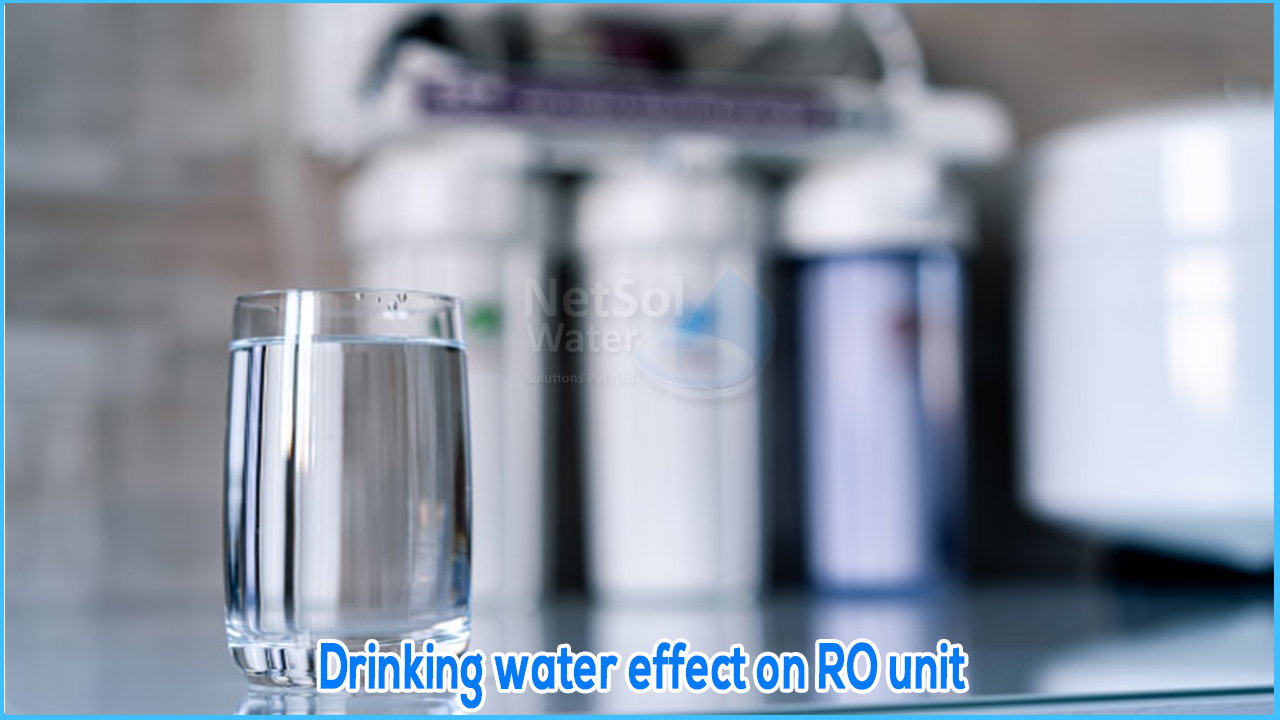What is drinking water?
Such water which can be consumed safely without any bad effect on the health of consumer is called potable or drinking water. The specifications of national and international drinking water standards differ greatly. Fortunately, these fluctuations are less of a problem because the key criteria for drinking water, especially the absence of traces of contaminants that are cumulatively toxic or can cause short- or long-term health risks in humans, in food for water purifiers are far away, less important. The value of a potable water supply lies more in the treatment of the water to make it potable than in the details of the final purity. This is desirable as it would be difficult, for example, to specify WHO guidelines for drinking water everywhere, as some WHO criteria would be more stringent than local specifications for drinking water, making it economically impractical.
Effect on RO-
Particularly important for feed water purification are the procedures to remove most particles, living things and bacteria. Clearly, removing trace compounds is not harmful, but it is generally not that critical. Most of the larger organic and inorganic molecular impurities listed are repelled by reverse osmosis. The remaining ions are absorbed by the ion exchange resin and the organic compounds are mainly oxidized by UV rays or adsorbed on activated carbon.
Some impurities are of direct concern, especially small organic molecules such as benzene, which are difficult to remove completely during water purification. Typically, limit values ??for drinking water are around 0.1 mg/l for tri-halomethanes and 0.01 mg/l for benzene. Furthermore, high concentrations of certain impurities require increased pre-treatment, especially chlorine and chloramines, which damage RO membranes if not reduced, for example with activated carbon. They are not generally limited to drinking water. High levels of iron and manganese can also damage reverse osmosis membranes and other heavy metals can contaminate EDI stacks. Boron compounds are easily released from ion exchange resins. Limit values ??are usually around 1 mg/l, but in Australia and India they are up to 5 mg/l and are not specified in the USA.
One of the areas that users may be concerned about is the presence of drug residues in pure water. In contrast to the strict requirements for pesticides in drinking water, very little is being done with pharmaceuticals, although awareness is increasing, especially in the US, there are no limits. However, the technologies used in water purification plants should eliminate drugs and endocrine disruptors.
Conclusion
The various standards for drinking water differ greatly in their requirements for water purity. The value of specifying a potable water supply lies more in treating the water to make it potable than in the details of final purity. Since the term "potable water" has different meanings in different parts of the world, it might be useful to add the definition to the feedwater specifications that "potable water is water that has been treated to remove vast majority of particles, bacteria, and other organisms and contains disinfectant residues to minimize bacterial growth”.




